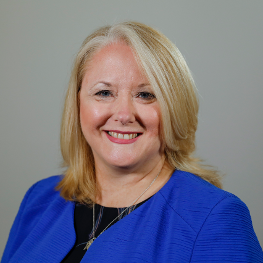HMRC releases equality objectives for next three years
HM Revenue & Customs released an update on its progress toward its equality objectives on Friday, as part of its third four-year plan, running 2020-2024.
During the course of their 2016 to 2020 equality, diversity and inclusion strategy HMRC made progress with the proportion of Senior Civil Servants from Black, Asian or ethnic minority backgrounds - seeing this more than double to 9.4% as of last March.
"We are committed to improving customer experience and the HMRC Charter defines the service and standard of behaviour that customers should expect when interacting with us," said Jim Harra, HMRC First Permanent Secretary and Chief Executive, introducing the report. "For the first time we also included our principles of support for customers who need extra help, which outlines what customers can expect if they require additional support. We expect every colleague to live our values every day in every decision."
 A previous review of the culture of HMRC, published in 2019, had identified opportunities to improve. One area singled out for work was the lack of a systematic and data-driven approach to managing people:
A previous review of the culture of HMRC, published in 2019, had identified opportunities to improve. One area singled out for work was the lack of a systematic and data-driven approach to managing people:
HMRC is ill-equipped to gather and mine data on its people’s experience. It is behind the curve compared to other organisations of a similar size and therefore struggles to target its interventions and manage its risks. The approach to data and assurance requires a fundamental examination of the corporate approach to how HR IT systems are exploited and used in HMRC. Further investment in and exploitation of data systems should not be delayed any further.
Since that report, HMRC has reviewed its stakeholder engagement to improve its effectiveness and seek feedback on issues, as well as to improve both the accessibility of HMRC services and the overall experience for users.
The newly announced equality objectives for 2020-2024 are for HMRC to be inclusive, respectful, representative. These are supported by twin action plans for colleagues and customers.
Colleagues
HMRC will focus on its approach to recruitment, promotion and talent, disciplinary measures and rewards and recognition to eliminate, justify or mitigate inequality of opportunity. This will run in parallel to communicating expectations among HMRC’s 17,000 staff to contribute positively to making the organisation a great place to work.
A key lever to pull will be the provision of high quality and tailored learning offers to support the development of talent, knowledge and inclusive and respectful behaviour. This will include the policing of language and “supportively challenging discriminatory behaviour”.
This will take place within a strengthened accountability framework that will, in response to the reservations expressed in the 2019 report, increase the quality and transparency of HMRC’s equality information to support evidence-based actions and impact measures. This will require further auditing of data sets to identify disparities between groups sharing diversity characteristics.
HMRC will counter-intuitively measure progress by monitoring colleagues’ willingness to report inappropriate behaviour, resulting in a perverse incentive to increase reports in order to demonstrate progress. Less controversially, the department will analyse process outcomes by equality-protected characteristics, to identify, reduce, eliminate and mitigate disparities, including casework volume and outcome, recruitment stages, reward nominations and performance management.
Customers
HMRC has already set a minimum accessibility standard in the published ‘Terms of Use’ between HMRC and software developers, requiring developers to meet W3C’s Web Content Accessibility Guidelines 2.1 at a minimum level of AA if software is web-based, or W3C’s guidelines for mobile software in order to ensure that available software will be compatible with a range of assistive technology.
Further progress will come improving systems and building better services, by involving users and stakeholders to work collaboratively, share information and build supportive, trusting and professional relationships, improving the accessibility of our digital services. This will include working with the UK devolved governments to deliver on national language commitments.
These activities will be supported by efforts to strengthen HMRC’s customer-centred culture principally by ensuring that staff are provided with the right tools and training. At the same time, HMRC will focus on learning from the monitoring and analysis of customer feedback from customer groups who access extra support and complaints for equality relevance, and review equality-related complaints in order to identify any trends and areas requiring improvements to guidance or processes.






